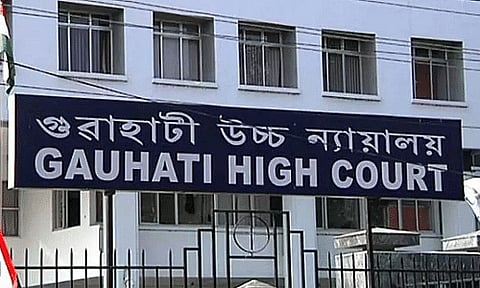
- Home
- Live Blog
- Breaking News
- Top Headlines
- Cities
- NE News
- Sentinel Media
- Sports
- Education
- Jobs

STAFF REPORTER
GUWAHATI: In the last 8 years, the number of pending cases in the Gauhati High Court registered an increase of 37.7% between 2014 and 2022.
As per information available on the National Judicial Data Grid (NJDG), as of December 12, 2023, the Gauhati High Court has 62,180 such cases.
The Gauhati HC had, as of December 31, 2014, a total of 43,048. The number has increased to 59,285 as on December 31, 2022, translating to a 37.72% rise in the number of cases pending in the last eight years.
There are several reasons that lead to the pendency of cases in courts, which, inter alia, include the availability of physical infrastructure and supporting court staff, the complexity of the facts involved, the nature of the evidence, the cooperation of stake holders, viz., bars, investigation agencies, witnesses, and litigants, and the proper application of rules and procedures. Other factors that lead to delays in the disposal of cases include a lack of a prescribed timeframe by the respective courts for the disposal of various kinds of cases, frequent adjournments, and a lack of adequate arrangements to monitor, track, and bunch cases for hearing.
Moreover, in cases of pendency of criminal cases, the Criminal Justice System relies on assistance from various agencies, viz., the police, prosecution, forensic labs, handwriting experts, and medico-legal experts. Delay in providing assistance by allied agencies also entails delay in the disposal of cases.
The number of cases pending in the District and Subordinate courts in Assam as of December 12, 2023 is around 4.5 lakh.
The disposal of pending cases and prescribing timelines for judgements and disposal of cases are within the exclusive domain of the judiciary, and the Central Government has no direct role in the said matter.
At present, there is no proposal before the government to launch a special campaign or separately set up special Lok Adalats other than the Lok Adalats already being organized by National Legal Services Authority (NALSA) for disposal of such cases, except cases of serious nature.
However, the government has undertaken several initiatives to provide for the setting up of special courts and benches in order to aid speedy disposal of pending cases, especially for the safety and security of women and children. The Central Government has approved a scheme for setting up Fast Track Special Courts (FTSCs) across the country for the expeditious disposal of pending cases of rape under the IPC and crimes under the Protection of Children from Sexual Offences (POCSO) Act, 2012. Also, special courts for lawmakers in order to fast-track criminal cases involving elected Members of Parliament (MPs) or Members of Legislative Assembly (MLAs).
As a part of the National eGovernance Plan, the government has launched the eCourts Mission Mode Project, wherein 25 virtual courts in 20 states and UTs have been operationalized to handle traffic challan cases. The Family Courts Act, 1984, provides for the establishment of family courts by the state governments in consultation with the high court to promote conciliation and secure speedy settlement of disputes relating to marriage and family affairs.
Also Watch: